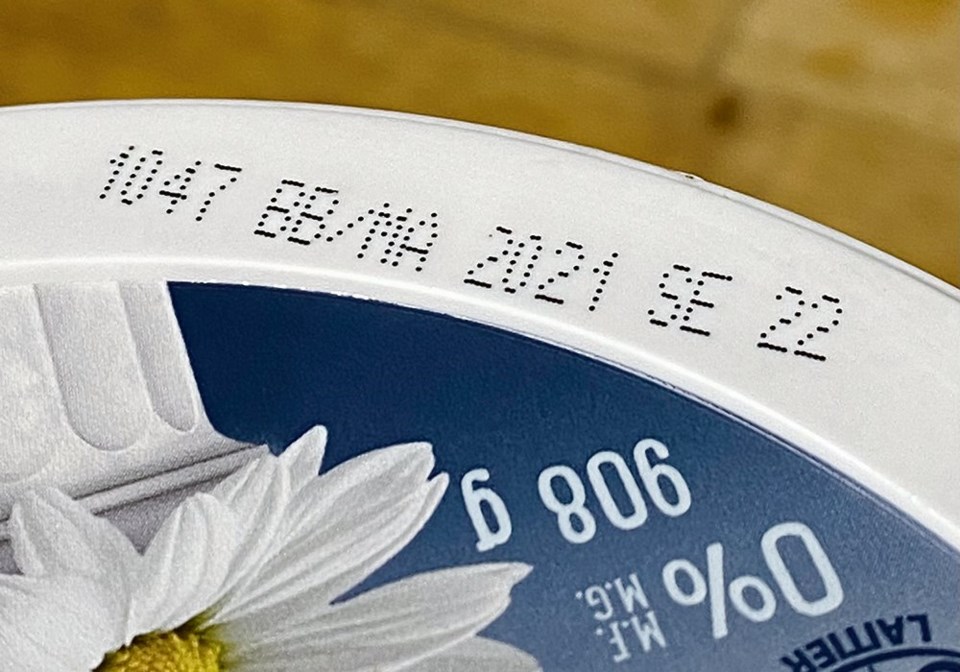Kerri Holland of KL Consulting in Edmonton said food is wasted throughout the chain but the economic value of food is highest at the consumer level so that is where the dollars add up.
“Everybody could do better,” she said in an interview. “There’s no use assigning blame; we just need to do better.”
However, consumers drive food waste at the farm level by demanding esthetically pleasing food and in restaurants by wanting abundance on their plates and then not eating all of the meal, she said.
At retail, consumers are influenced by what is on the shelves.
“Consumers want to see the abundance and if they don’t, they won’t buy that one watermelon that’s left on the shelf,” Holland said. “They want to see 40 watermelons.”
So, grocers overstock and then end up wasting at that level, too.
She said a disconnect within the food system and the lack of knowledge about food, or food literacy, are reasons why consumers waste so much.
As well, Canadians generally still pay low prices for their food at an average of 10 to 12 percent of household expenses, she said.
Holland said consumer confusion over date codes on products contributes greatly to the problem.
Most food packages are stamped with a code that will say sell by, best before or expiry. Holland said many people think that as soon as that date hits there is something wrong with the product.
“They’re prematurely throwing out food that would be still perfectly edible and healthy, too, just because of those date codes and worries about food safety.”
Holland said very few products in Canada actually require the date codes.
According to the Canadian Food Inspection Agency, the only foods that actually require an expiration date are baby formula, nutritional supplements, meal replacements, foods sold by a pharmacist with a doctor’s prescription and formulated liquid diets for people who are fed orally or by tube.
Foods that will stay fresh for 90 days or less, and are packaged at a location other than the retailer where they are being sold, must have a best-before date and proper storage instructions. The same food if packaged at the retailer may be labelled the same, or with “packaged on” and information about how long the food will last. The latter information can be on the package or on a poster next to the product.
The CFIA says it’s up to the manufacturer or retailer to determine if the product has a durable life of up to 90 days.
“Food producers and retailers that manufacture food products base the date on how long an unopened product will retain its wholesomeness, taste, nutritional value, and any other qualities, as well as other factors such as the type of product, how it is processed and how it is packaged and stored,” said the agency’s website.
Food products with a shelf life of more than 90 days don’t have to be labelled at all. These include canned food, dry foods such as pasta, and frozen food.
Still, Holland said, many of these products do have date labels and that is leading to a lot of waste. She said some will say they are trying to protect their brand image and quality by doing so. But grocers know that consumers will reach to the back of the shelf for a product with a supposed longer shelf life. They bypass perfectly good products hoping they will sell to others, but if the products don’t sell, it causes waste.
“A lot of food banks don’t want those products from the grocery store either because there’s a lot of misconceptions about food liability and safety,” she said. “Plus, there’s also a stigma to giving their patrons something that appears old or expired as well.”
Holland said businesses should be more transparent about why they are using the dates, or modify labels to tell consumers what to do if they can’t use a product by a certain date. For example, something could be frozen and used later rather than tossed in the garbage.
Holland also said consumers have to re-connect with their food and value it, especially as prices go up.
Processors and manufacturers are starting to measure waste and account for it, she noted. Maple Leaf Foods has made changes in its plants to reduce waste that goes on there.
Holland said one easy way for governments to alleviate food waste would be change date code policies. But she said reviewing all government policies and programs, especially in the context of international commitments to reduce both food waste and greenhouse gas commitments, would be a good step.
Educating people that genetically modified products that have a longer shelf life or transport more easily without bruising could also reduce waste, she said.

